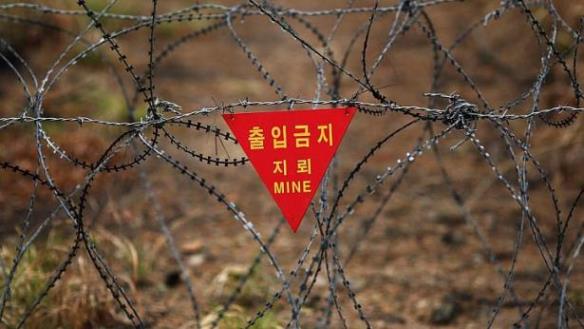by REERA YOO
The White House announced on Tuesday that it would eliminate all stockpiles of anti-personnel land mines except those in the Korean peninsula, reported Yonhap.
The State Department said that, outside of Korea, the U.S. will cease the use of all anti-personnel mines, complying with the 1999 Ottawa Convention, which bans the use, stockpiling, production and transfer of land mines.
The U.S. cited “unique circumstances” in the two Koreas and its commitment to South Korea’s defense as the main reasons why the country cannot accede to the 15-year-old global treaty.
“We will continue our diligent efforts to pursue solutions that would be compliant with and ultimately allow us to accede to the Ottawa Convention while ensuring our ability to meet our alliance commitments to the Republic of Korea,” National Security Council spokeswoman Caitlin Hayden said.
According to The Wall Street Journal, millions of anti-personnel land mines remain buried under the demilitarized zone and are regularly replaced from both sides. In recent years, South Korea has periodically found land mines washed up in areas frequented by civilians after heavy rainfalls and landslides. This has caused numerous deaths and critical injuries to civilians. The latest known civilian death caused by a land mine occurred just last year when a farmer died while plowing a field in South Korea.
Although the Obama Administration said it is “deeply concerned about the humanitarian effects of anti-personnel land mines,” the U.S. is yet to sign the treaty, despite more than 160 countries already being signatories.
“As the world’s leading donor to humanitarian mine action, we have long worked to mitigate the human cost of their use,” said State Department spokeswoman Jen Psaki.
She added that the U.S. has provided more than $2.3 billion in aid since 1993 to more than 90 countries to help destroy conventional weapons, including land mines.
Photo via Real Clear Defense









